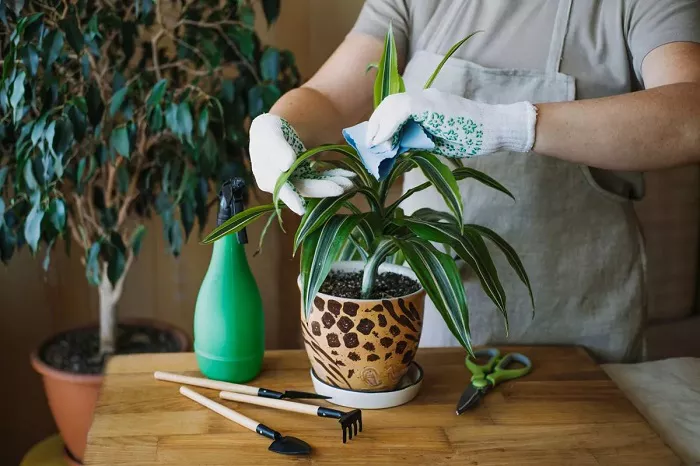As gardens across the UK burst into full summer bloom, experts are urging gardeners to keep a close eye on their plants, particularly the leaves, to avoid a nasty surprise. While late spring and early summer are prime times for popular plants like peonies, lilacs, and wisteria to showcase their vibrant colors and fragrances, they also attract a variety of harmful insects that can wreak havoc in the garden.
Gardener’s World advises checking plants regularly for pests, especially on shoot tips and the underside of leaves. Common culprits include slugs, aphids, and caterpillars. These insects can cause significant damage if left unchecked.
Hosta plants, in particular, are vulnerable to slugs, which are attracted to their broad leaves. These omnivorous pests can leave the plants riddled with holes. Aphids, on the other hand, pose an even greater threat. These small sap-sucking insects, such as greenflies and blackflies, are particularly drawn to soft, young plants. Despite their tiny size, aphids can cause disproportionate damage by stunting plant growth, weakening plant structures, damaging leaves, and spreading diseases like turnip yellows virus.
While pesticides might seem like an easy solution, they are often not the best choice due to their harmful environmental impact. Instead, biological control methods are recommended. This involves using natural predators to reduce pest populations. For example, lacewing larvae or adult ladybirds can be introduced to combat aphid infestations, as they consume large numbers of these insects. Parasitoid wasps can also be used, as they kill aphids by laying their eggs inside them.
For slugs, nematodes are an effective biological control. These microscopic worms infect slugs with a natural bacterium, ultimately killing them. Physical barriers, such as copper bands around plant pots, can also deter slugs, as the copper creates an electric shock when it reacts with their mucous.
Another alternative is to create a beer trap. A simple beer trap can be made by placing an old yogurt container filled with beer near affected plants. The yeast in the beer attracts slugs, which then drown in the container.
By employing these natural methods, gardeners can protect their plants from pests while minimizing harm to the environment, ensuring a healthy and vibrant garden throughout the summer season.


